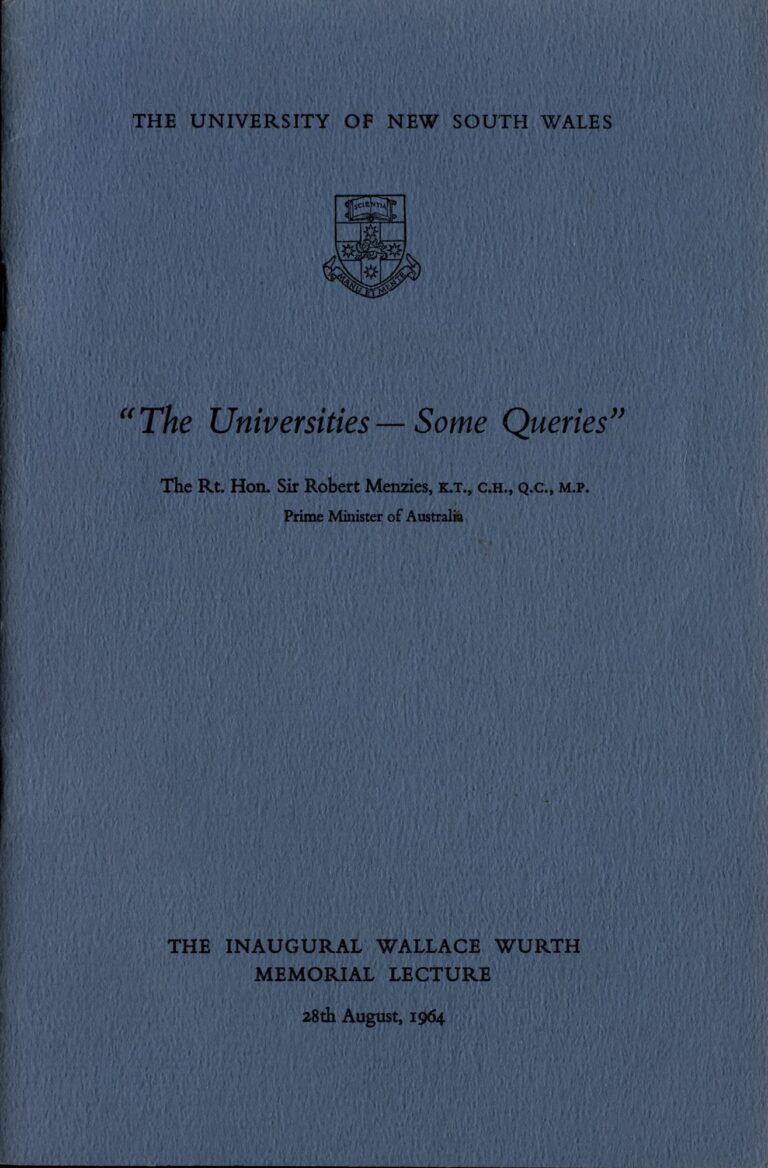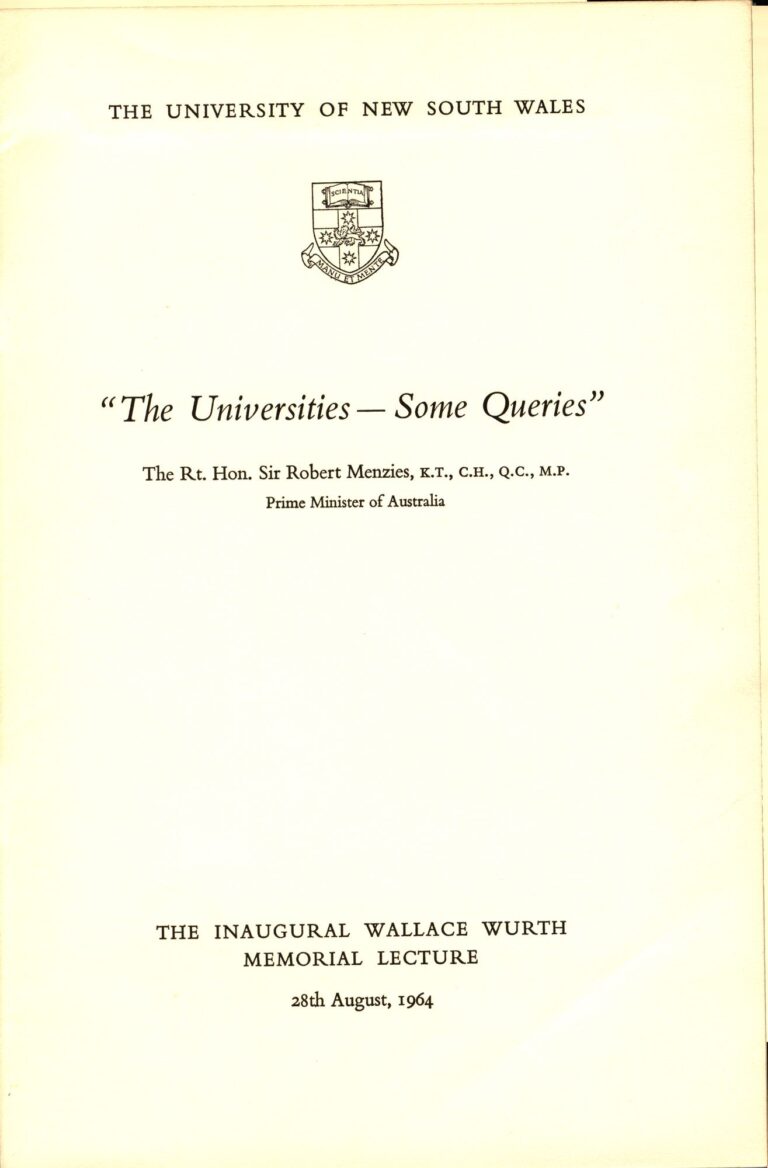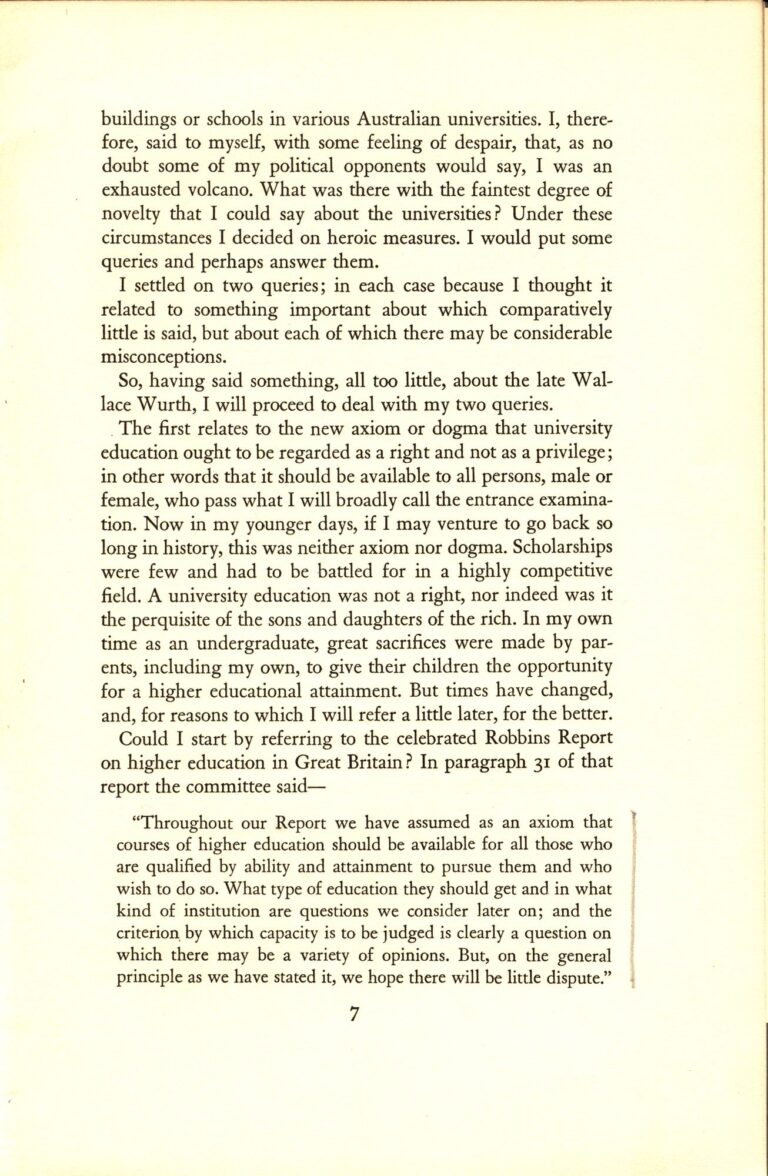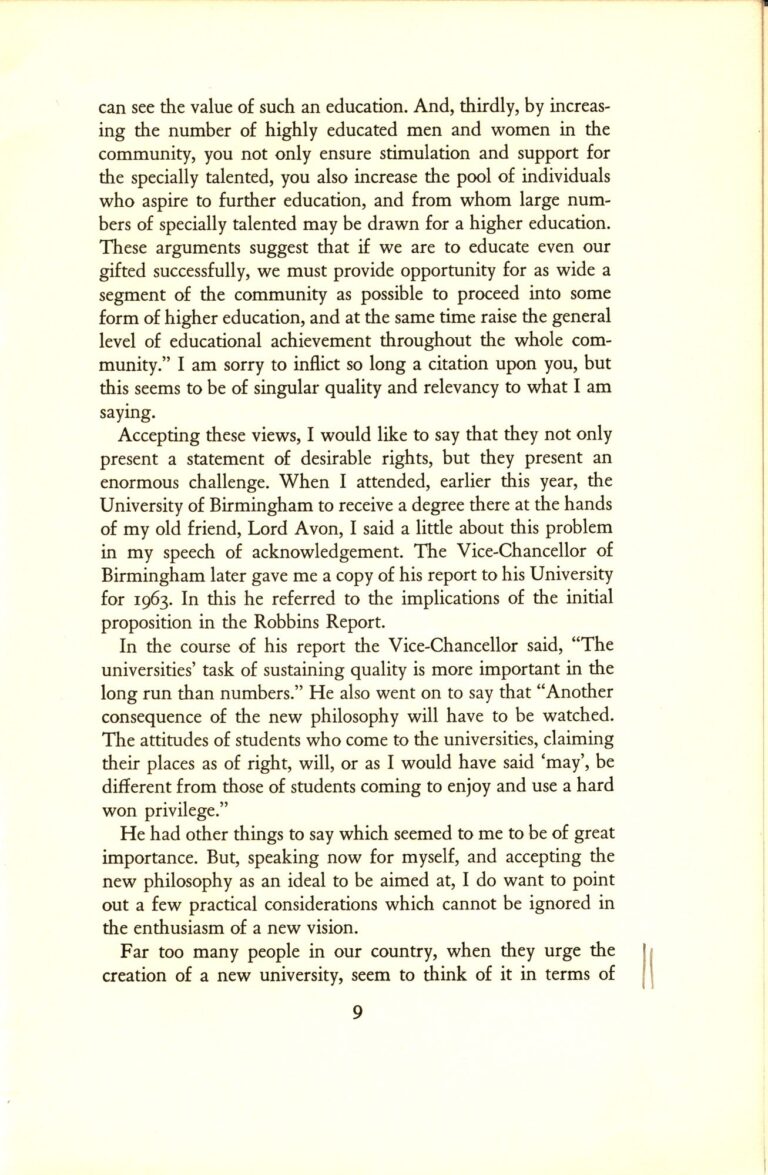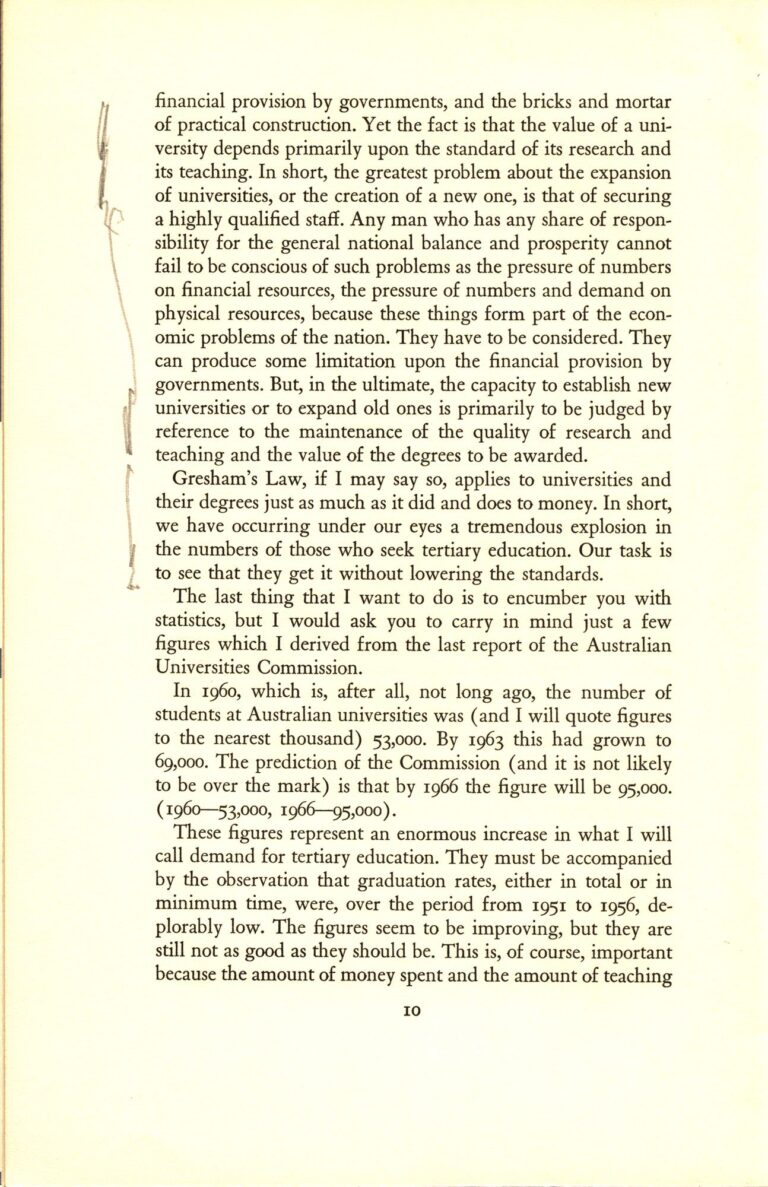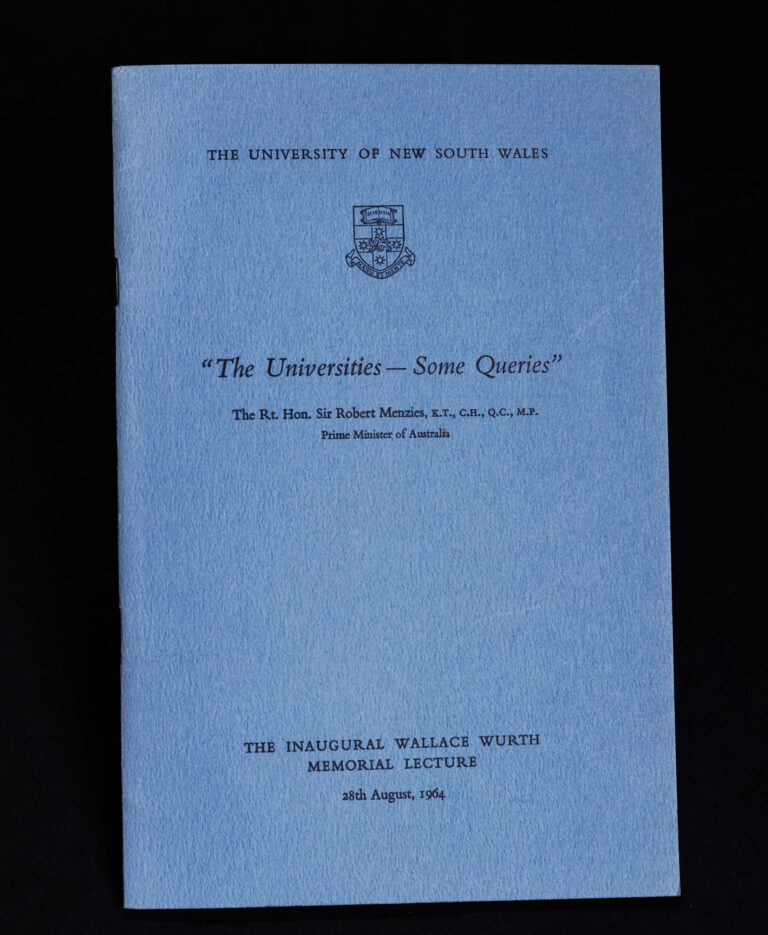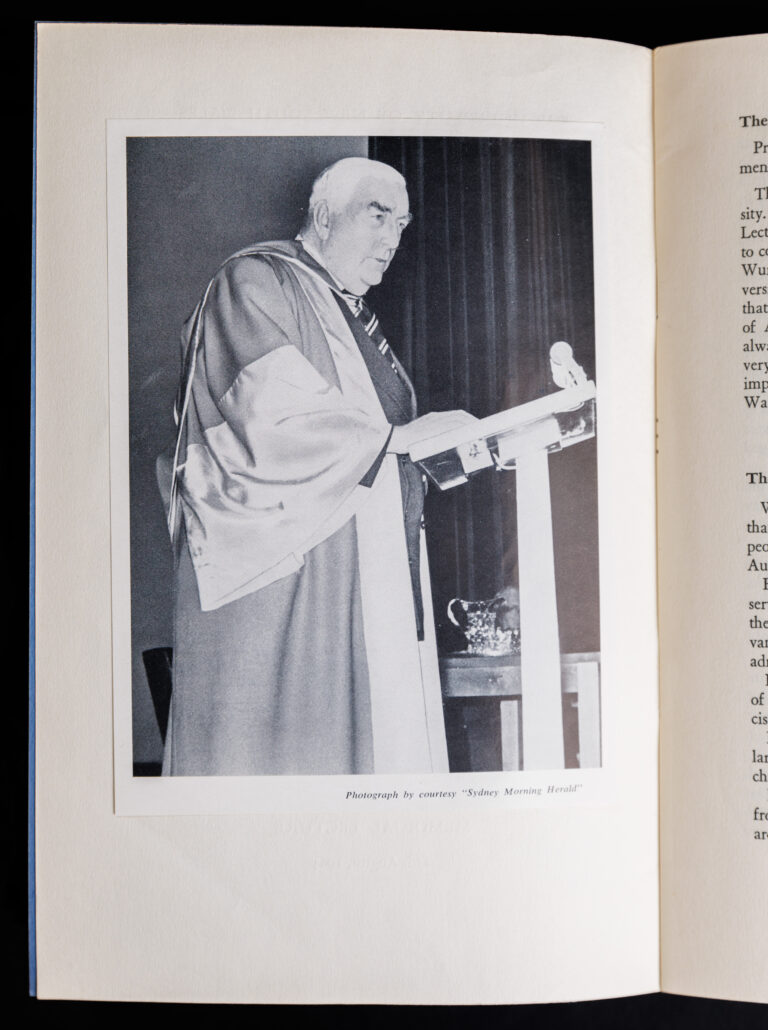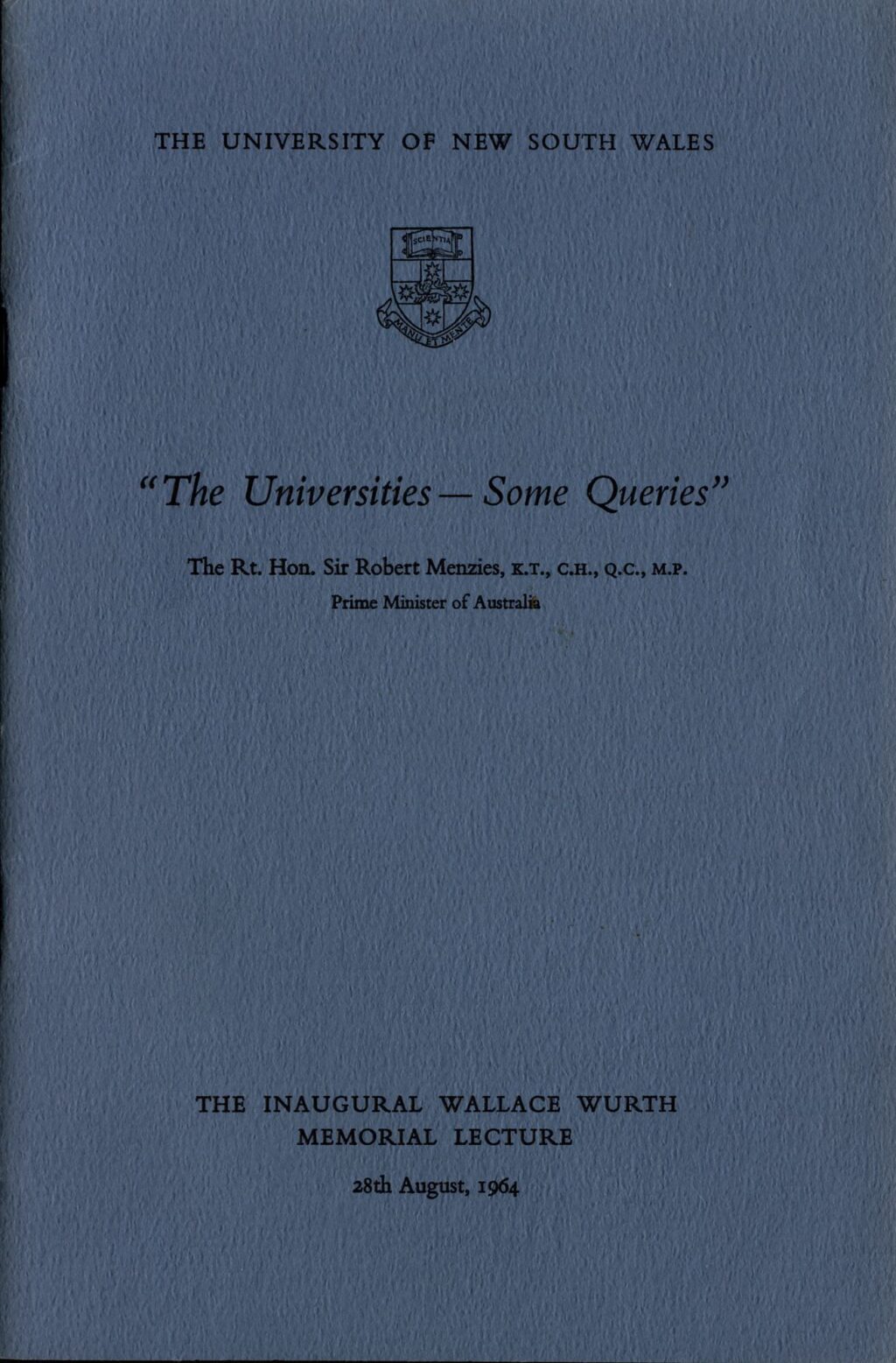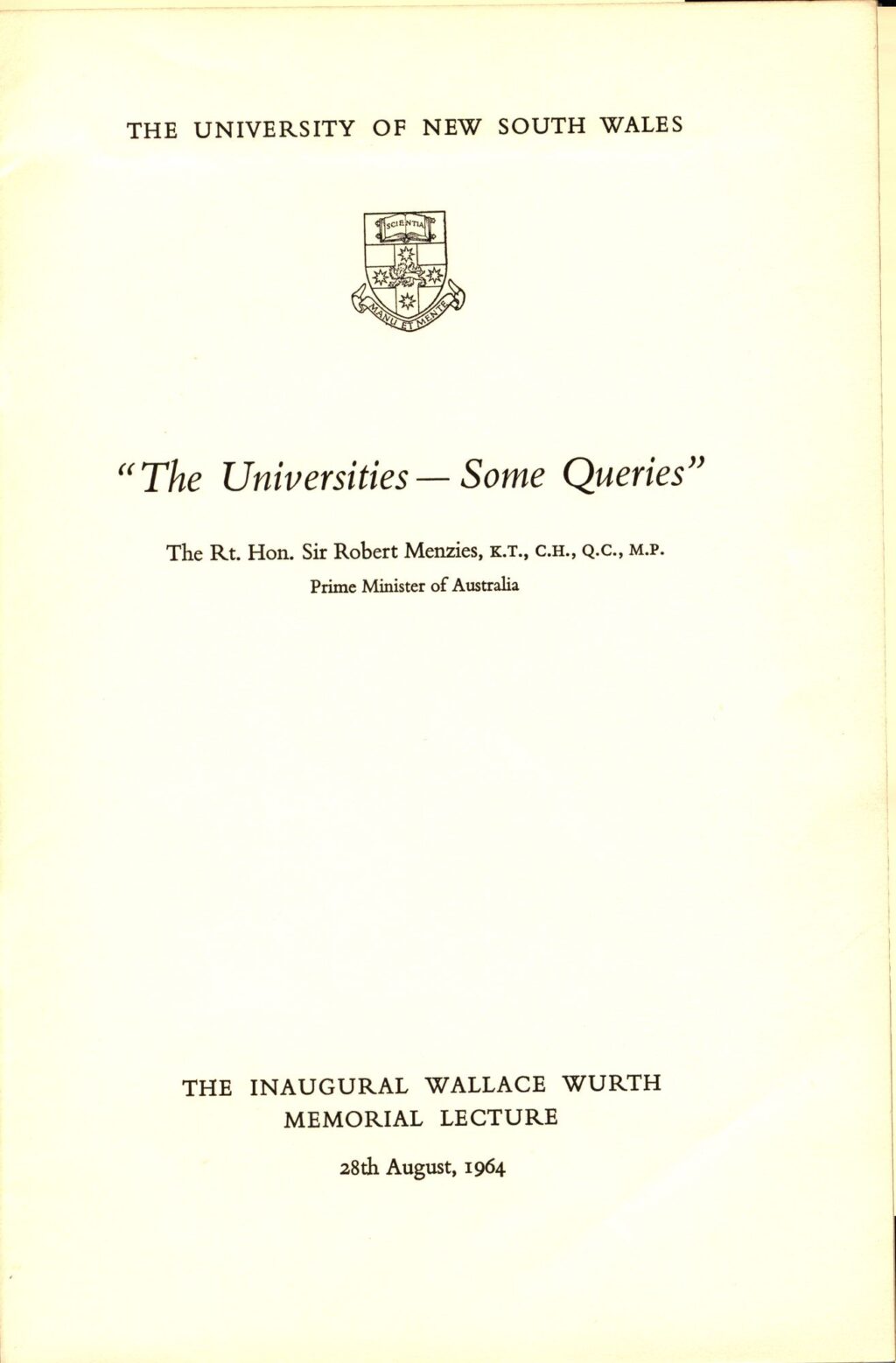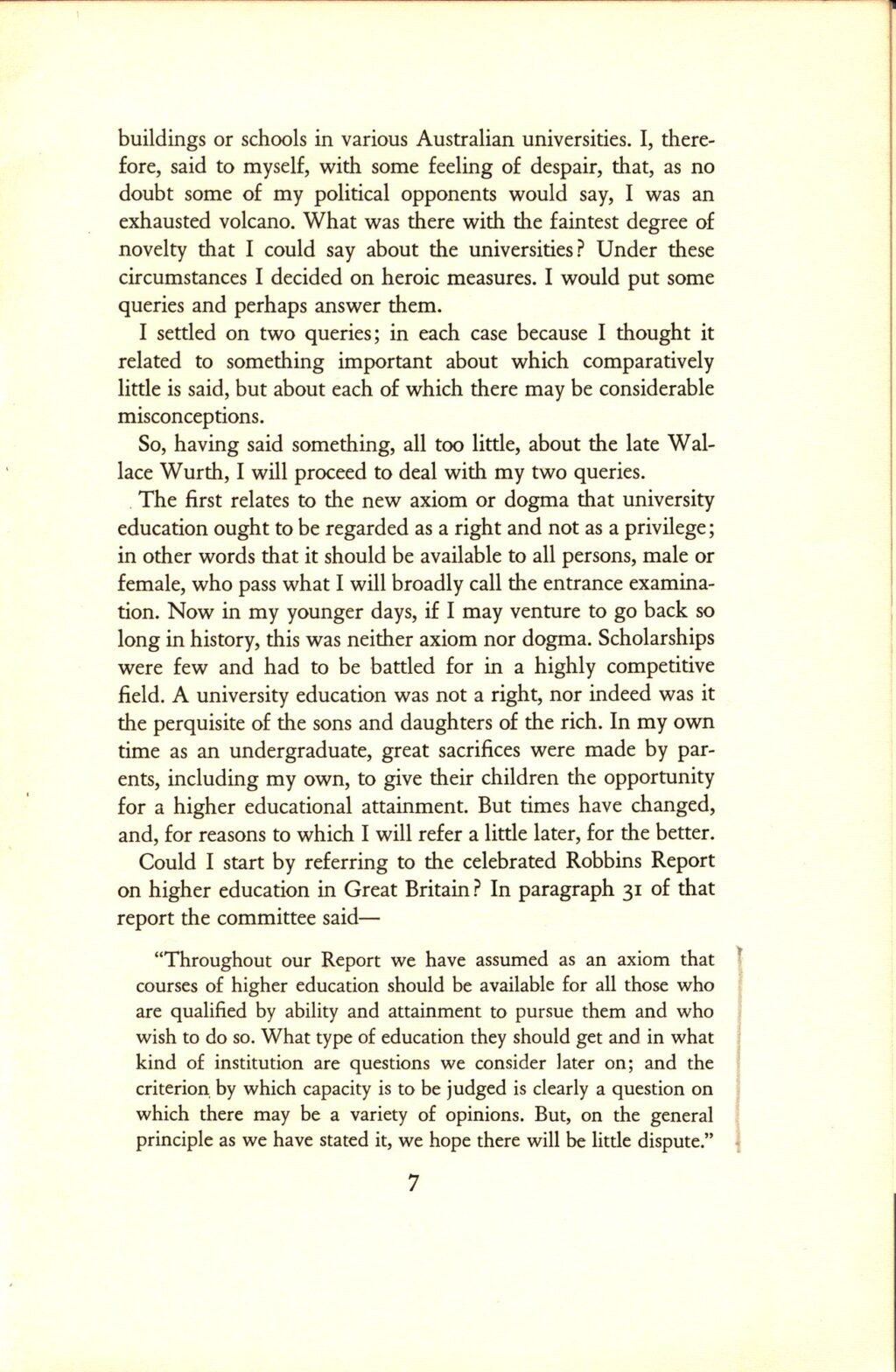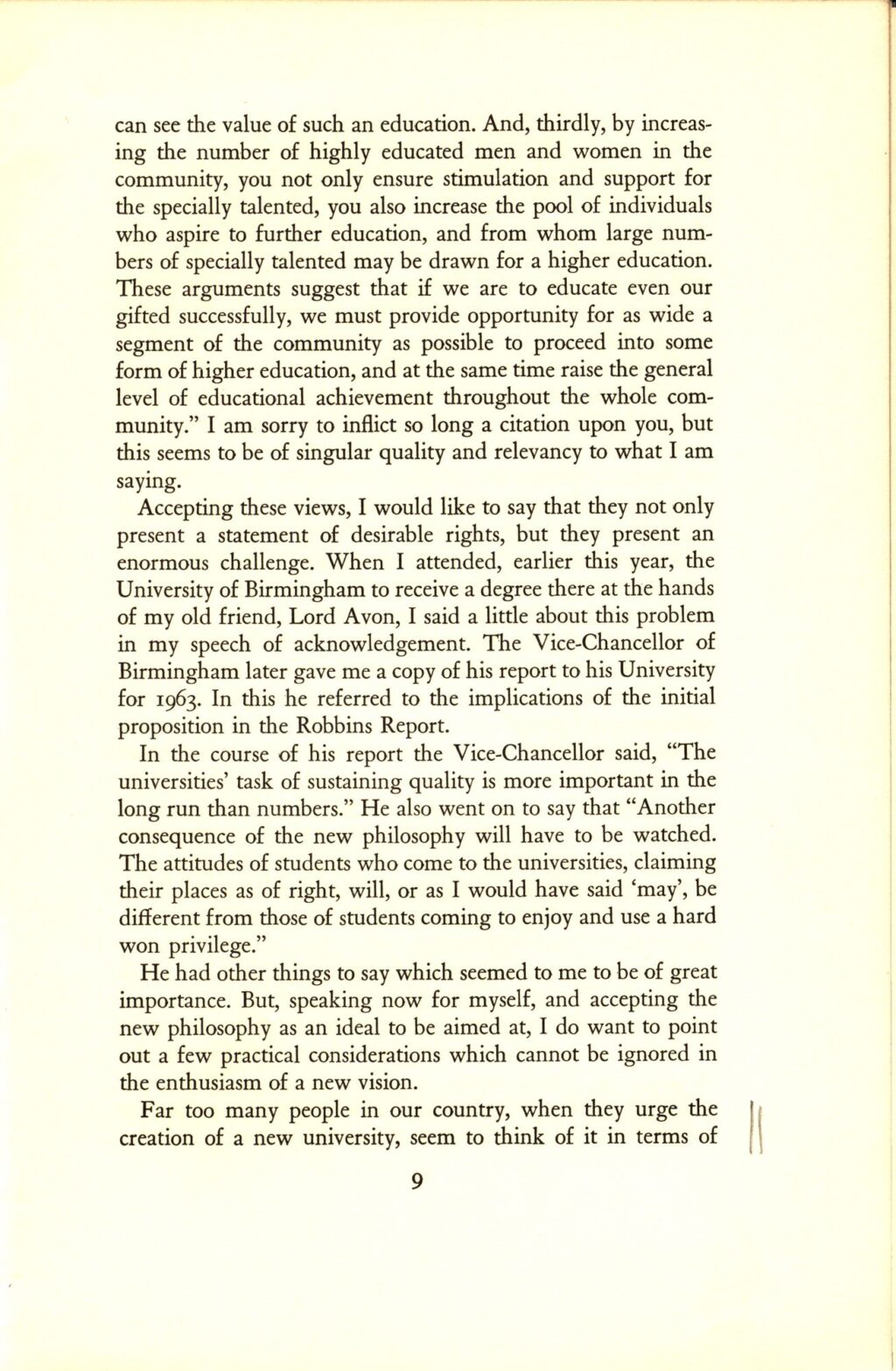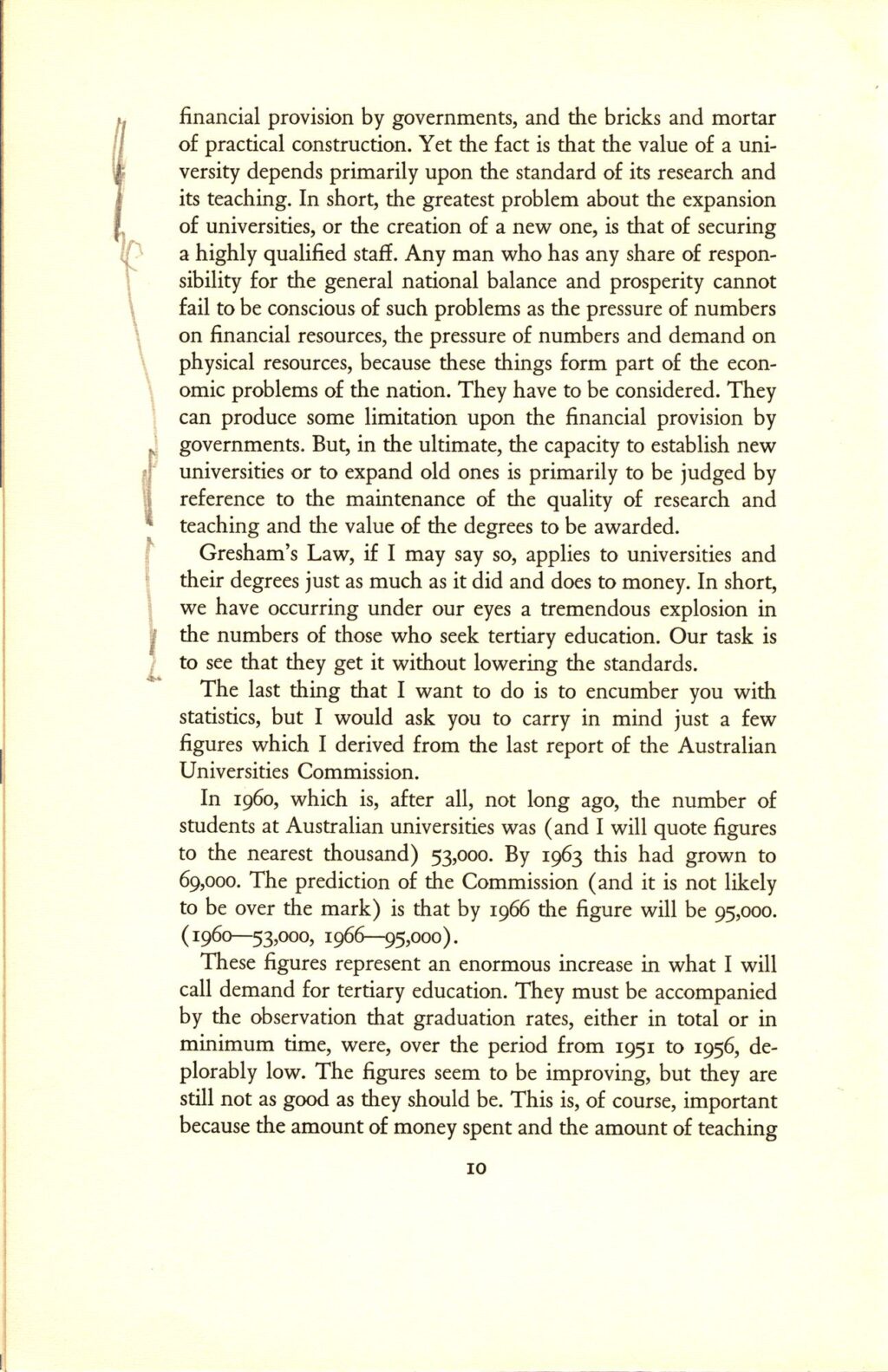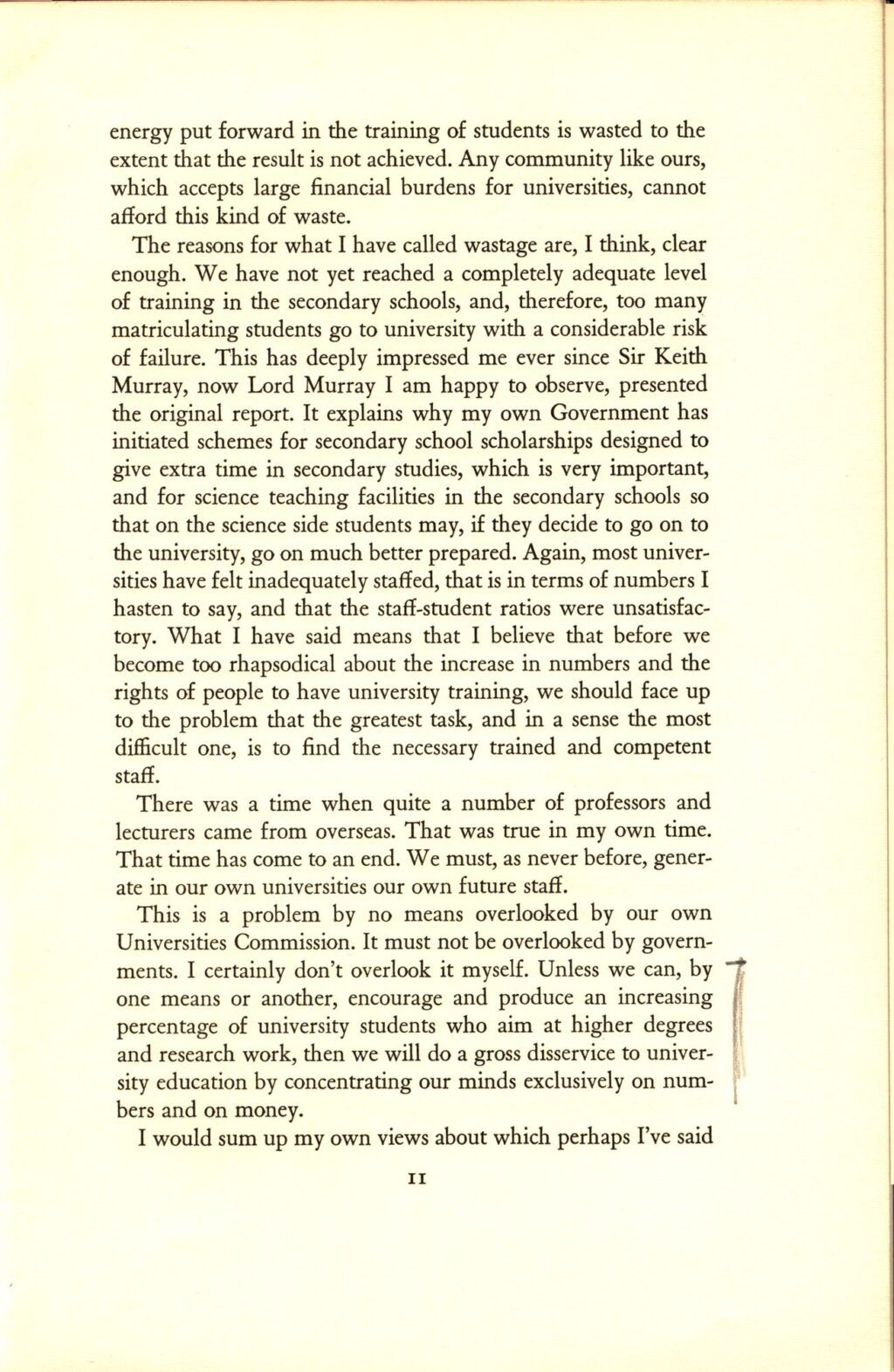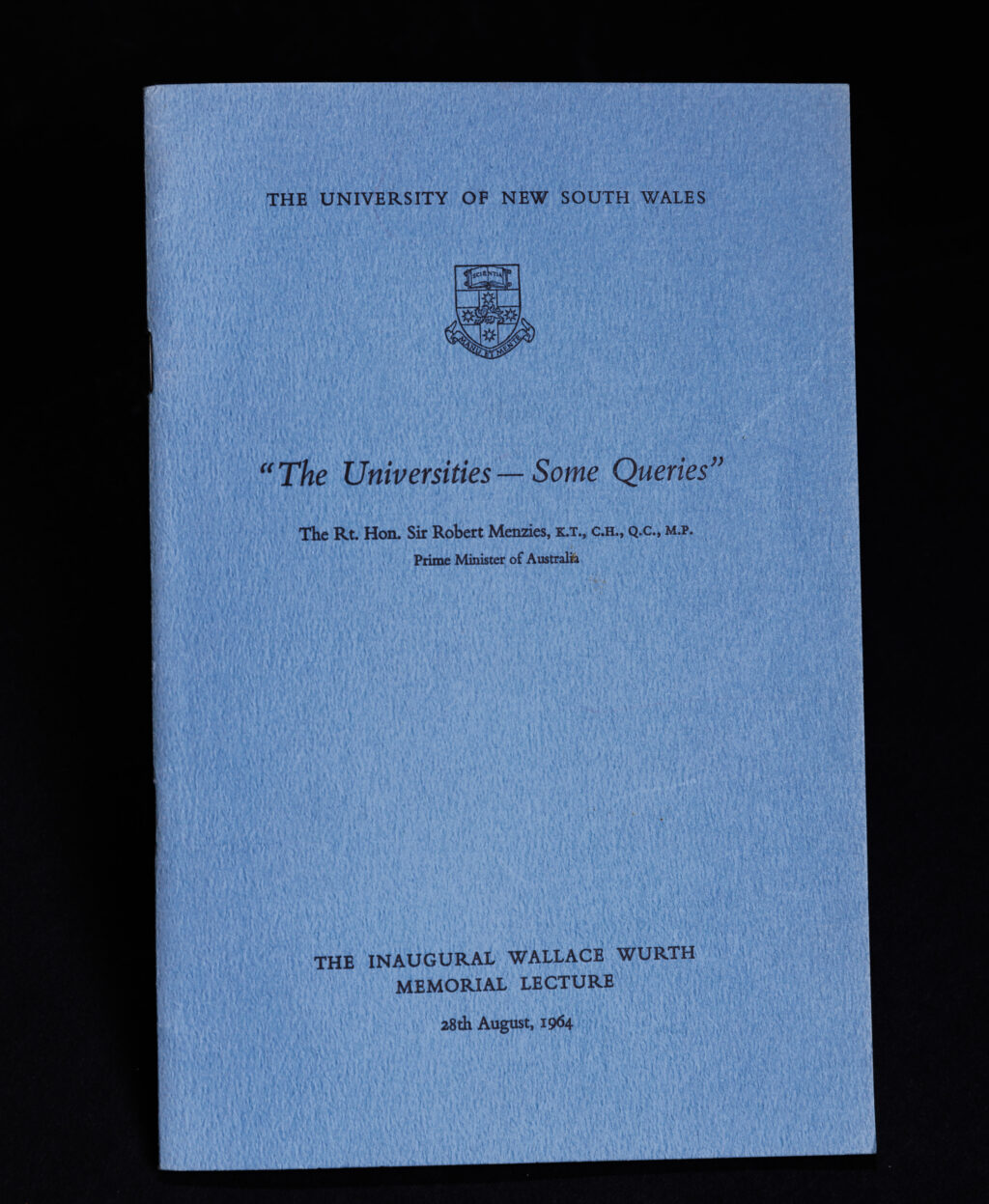| Entry type: Book | Call Number: 965 | Barcode: 31290035203496 |
-
Author
Menzies, R. G. (Robert Gordon)
-
Publication Date
1964
-
Place of Publication
New South Wales
-
Book-plate
No
-
Edition
First
-
Number of Pages
21
-
Publication Info
pamphlet
Copy specific notes
Several sections of text highlighted in pencil including: “Throughout our Report we have assumed as an axiom that courses of higher education should be available for all those who are qualified by ability and attainment to pursue them and who wish to do so. What type of education they should get and in what kind of institution are questions we consider later on; and the criterion by which capacity is to be judged is clearly a question on which there may be a variety of onions. But, on the general principle as we have stated it, we hope there will be little dispute” [p. 7, quoting the Robbins Report]; “Far too many people in our country, when they urge the creation of a new university, seem to think of it in terms of financial provision by governments, and the crick and mortar of practical construction. Yet the fact is that the value of a university depends primarily upon the standard of its research and teaching. In short, the greatest problem about the expansion of university, or the creation of a new one, is that of securing highly qualified staff. Any man who has any share of responsibility for the general national balance and prosperity cannot fail to be conscious of such problems as the pressure of numbers on financial resources, the pressure of numbers and demand on physical resources, because these things form part of the economic problems of the nation. They have to be considered. They can produce some limitation upon the financial provision by governments. But, in the ultimate, the capacity to establish new universities or to expand old ones is primarily judged by reference to the maintenance of the quality of research and teaching and the value of the degrees to be awarded. Gresham’s Law, if I may say so, applies to universities and their degrees just as much as it did and does to money. In short, we have occurring under our eyes a tremendous explosion in the numbers of those who seek tertiary education. Our task is to see that they get it without lowering the standards” [p. 9 -10]; and “This is a problem by no means overlooked by our own Universities Commission. It must not be overlooked by governments. Unless we can, by one means or another, encourage and produce an increasing percentage of university students who aim at higher degrees and research work, then we will do a gross disservice to university education by concentrating our mind exclusively on numbers and money.” [p. 11].
Related entries
Sign up to our newsletter
Sign up for our monthly newsletter to hear the latest news and receive information about upcoming events.

